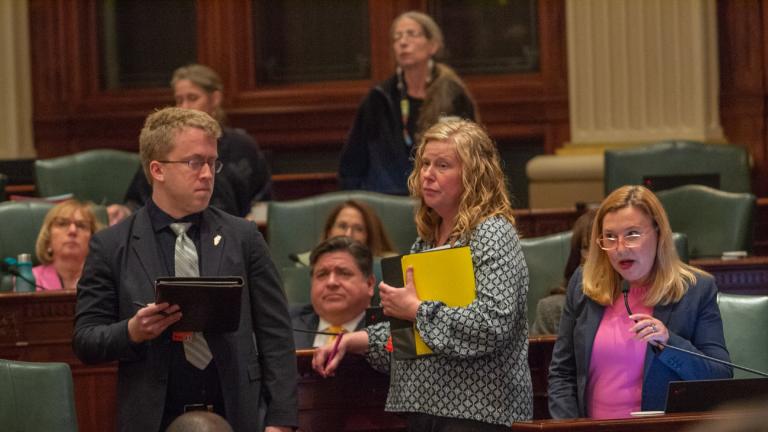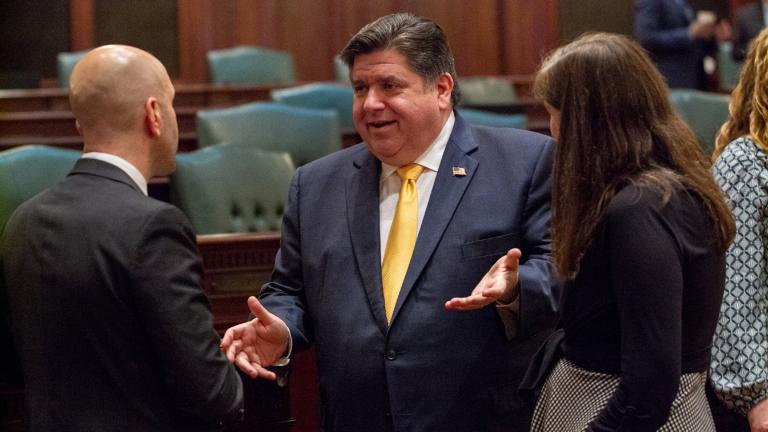Gov. Bruce Rauner – once known for exerting an iron grip over Republican legislators that had them follow him in lockstep – got a taste Wednesday of his lame-duck status.
In short order, members of the General Assembly began to override a succession of Rauner’s vetoes of bills passed during the spring session.
Among them: legislation that would ban the sale of tobacco and vaping products to anyone under 21 years old, and a measure to require law enforcement to certify within three months cases in which an undocumented immigrant has worked with them on a trafficking case.
Smoking age to 21
Rauner had objected to raising the smoking age to 21, writing in his veto message of Senate Bill 2332 that “this legislation will inhibit the choice of consumers while also not helping keep tobacco products out of the hands of youth” because they’ll be able to buy cigarettes and other products in Indiana, Wisconsin and Missouri or from unlicensed sellers.
Sen. Dan McConchie, R-Hawthorn Woods, argued it’s wrong to draw different lines in different circumstances as to when someone is considered an adult.
“There’s lots of ways to screw up your life,” McConchie said. “What we’re saying by this legislation is that you can marry, you can have children that you’re financially responsible for, you can even decide who should be governor of the state of Illinois … but you are not wise enough to be able to determine whether or not to buy and use a particular product.”
But on a 36-19 vote, the Senate overrode the governor’s objections and dismissed critiques like those from McConchie.
“Smoking is not a right,” said sponsor Sen. Julie Morrison, D-Deerfield. It’s a “societal burden,” and making it harder for young adults to get ahold of tobacco products is a tool to prevent them from picking up the hazardous habit.
The VOICES Act
The immigration measure, known as the VOICES Act, would give police a 90-day deadline to complete and submit paperwork for immigrants seeking to obtain a U or T visa – visas made available to immigrants who are victims of crimes like abuse or human trafficking and who help law enforcement with their efforts to catch perpetrators.
Senate President John Cullerton said the legislative push, Senate Bill 34, is necessary because of complaints from immigration advocates that certain local state’s attorneys failed to ever fill out the forms, thus denying immigrants a chance at the visas. Cullerton was unable, however, to cite a specific instance.
“If the authorities don’t think the person qualifies because (they) didn’t cooperate they can say that in the report,” Cullerton said. “All this does is set a 90-day deadline for finishing the report … it closes a loophole in the process.”
Cullerton said Rauner rejected the proposal “over the summer, in the heat of an election campaign with immigration being a political buzzword.”
In his veto message, Rauner called the plan an “unfunded mandate” that would put additional strain on already-stressed law enforcement agencies, subjecting them to “significant liability, even for good faith efforts to certify. Requiring certification within a tight timeline but also subjecting law enforcement to perjury if a mistake is made is an unacceptably risky position to put law enforcement in.”
Both the smoking and immigration measures now go to the Illinois House; should representatives follow the Senate’s lead, both measures will become law. Each would die if three-fifths of all representatives fail to override the vetoes.
Follow Amanda Vinicky on Twitter: @AmandaVinicky
Related stories:
All Clear After Bomb Threat at State Capitol
Veto Session Begins; Madigan on Board With Pritkzer’s Plans for Pot, Taxes
Survey Finds E-Cigarette Use Soaring Among Illinois Teens
Gov.-Elect J.B. Pritzker Promises Honest Assessment of State’s Finances








